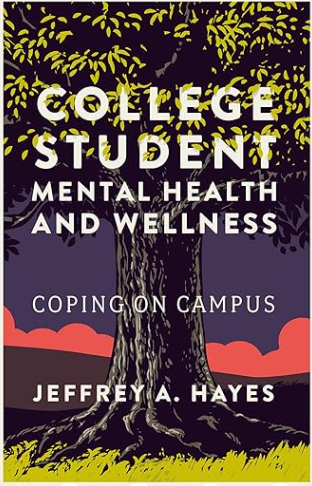Introduction
College Student Mental Health and Wellness: Coping on Campus College life often seems like a time of freedom, new friends, and educational chances, but it also brings mental stress, emotional swings, and practical hurdles. With new environments, exams, financial concerns, and social pressures, many students experience stress, anxiety, depression, and other mental health issues. In this article, we will explore college student mental health and wellness tips, provide practical strategies, and share resources that can help you stay mentally resilient while on campus.
Common Mental Health Issues in College Students
Stress and Anxiety
Exams, assignments, and a lack of time in college create constant stress in students. Anxiety can result in sleep deprivation, increased heart rate, and difficulty concentrating. healthy habits for better sleep and study focus
Depression
Loneliness, domestic problems, or the fear of not meeting expectations can lead to depression. Symptoms include persistent sadness, loss of interest, and lack of energy.
Social pressure
The pressure to make new friends, maintain relationships, or stay on social media can increase mental fatigue.
Strategies for better mental health
Study and effective time management
Create a timetable and stick to it.
Break large tasks into smaller chunks to reduce stress.
Sleep and rest
At least seven to eight hours of quality sleep is essential.
Limit mobile and screen use before bed.
Balanced diet
A diet based on protein, vegetables, and fruits helps with mental peace.
Excessive consumption of caffeine and junk food can increase stress.
Physical activity
Daily walks, yoga, or going to the gym increase mental and physical energy.
Physical exercise reduces depression and anxiety.
Social support
Talk openly with close friends or family.
Don’t hesitate to contact your campus counseling service.

Facilities available on campus
Many colleges and universities offer specialized programs and counseling centers for student mental health, such as:
Counseling centers: Free meetings with psychologists.
Wellness workshops: Stress reduction training and group sessions.
Health clinics: Basic medical advice and emergency help.
Technology support for mental health
The right use of technology can help with peace of mind:
Meditation apps like Headspace or Calm.
Online therapy platforms that allow you to connect with experts from home.
Health tracking devices that monitor sleep and heart rate.
These tools are great opportunities for your affiliate blog to recommend trusted products to readers, such as noise-canceling headphones, meditation app subscriptions, or smartwatches for peace of mind.
Key Features
- College stress is a common but treatable problem.
- Timely counseling and support groups can reduce depression.
- Taking care of your physical health is essential for peace of mind.
- Digital tools and apps can help improve your mental health.
Conclusion
College life is a valuable experience, but neglecting your mental health can lead to future problems. With time management, a balanced diet, physical activity, and social support, you can not only achieve academic success but also positively live this phase of life. best meditation apps for college students
FAQs
Question 1: What should be the first step if I am feeling depressed?
Answer: Talk to a close friend, family member, or college counselor right away and see a psychologist if necessary.
Question 2: Does social media increase stress?
Answer: Excessive use can increase anxiety, so limit the time spent on it.
Question 3: Does sleep deprivation affect test performance?
Answer: Yes, sleep deprivation affects attention, memory, and decision-making.
Question 4: Which apps are best for mental peace?
Answer: Apps like Headspace, Calm, and Moodfit help with meditation and stress reduction.
Question 5: Can physical exercise reduce depression?
Answer: According to research, regular exercise improves mood and reduces anxiety.

College Student Mental Health and Wellness: Coping on Campus,
- College stress is a common but treatable problem.
- Timely counseling and support groups can reduce depression.
- Taking care of your physical health is essential for peace of mind.
- Digital tools and apps can help improve your mental health.



![USDA Organic Superfood Greens [28 Powerful Ingredients] The Secret to Energy and Immunity with Natural Capsules "Organic Superfood Greens Capsules with Alfalfa, Beet Root, Ginger and 28 natural ingredients for energy and immune support"](https://profitvity.com/wp-content/uploads/2025/09/USDA-Organic-superfood-greens-28-powerful-ingredients-natural-capsules.png)
